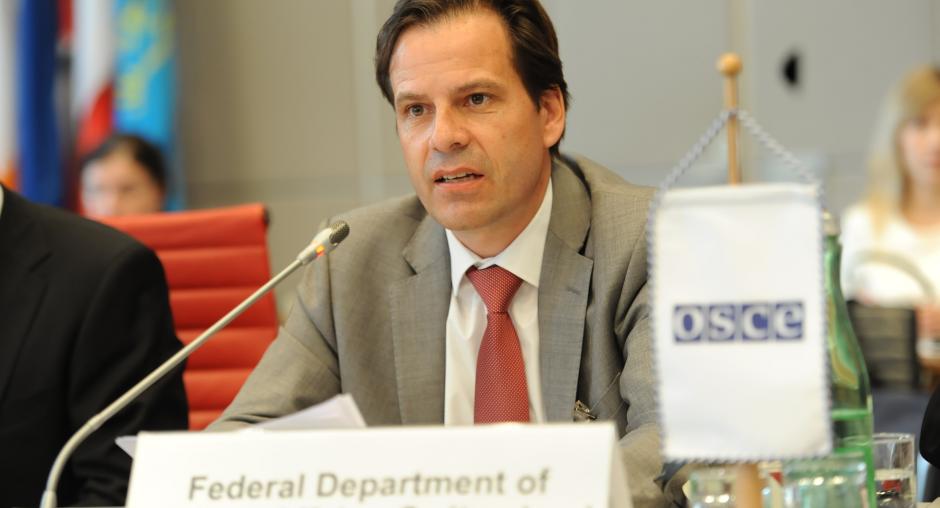OSCE Forum for Security Co-operation debates new technologies and impact on security

Global efforts are needed to address the challenges associated with scientific and technological progress and its impact on security and arms control, said speakers at the session of the OSCE Forum for Security Co-operation held on 31 May 2017 in Vienna.
Frank Grütter, Head of the Security Policy Division in Switzerland’s Foreign Ministry, stressed that the breath-taking pace of innovation and development across diverse areas of science and technology against the background of a global security context requires that the international community pays attention to developments in this field.
“We see global power shifts, geopolitical tensions, regional instabilities and the emergence of new actors. In this context, specific advanced weapons technologies could fit the particular needs of some actors, which could in turn further contribute to existing tensions,” Grütter said.
He noted that the problem is not new technologies as such but the fact that they can be used for harmful or malign purposes. Referring to lethal autonomous weapons, a type of military robot designed to select and attack military targets without intervention by a human operator, Grütter said: “We also have little sense of what will happen when artificial intelligence and robotics will be weaponized, and how this could transform the methods of warfare.”
Among ways of responding to these challenges, he named introducing the legal obligation to examine the compatibility of new weapons with existing international law and establishing a dialogue which would include not only states and international organizations, but also the scientific community, the private sector and civil society.
Philip Griffiths, Head of Secretariat of the Wassenaar Arrangement on Export Controls for Conventional Arms and Dual-Use Goods and Technologies, stressed that export controls and responsible transfer policies are an “essential part of the toolkit available to governments in seeking to pre-empt proliferation risks associated with sensitive technologies that are relevant to military or terrorist capabilities”.
The Wassenaar Arrangement, established in 1996, and currently with 41 participating States, promotes transparency and greater responsibility in transfers of conventional arms and dual-use goods and technologies to prevent destabilizing accumulations as well as the acquisition of these items by terrorists.
Griffiths noted that Wassenaar Arrangement participating States invest significant technical resources in keeping pace with rapid technological advances and related security risks, such as through new or refined export controls in the areas of mobile communications interception, cyber security, Internet surveillance, space and artificial intelligence.
“Working multilaterally is vital to ensure cohesive policy frameworks, coordinated approaches and a consistent application of controls, not only among key producers and exporters of sensitive items, but globally,” Griffiths said.
The speakers underlined the OSCE’s expertise in the area of arms control, noting its elaboration of confidence- and security-building measures and of agreements such as that on small arms and light weapons, and its contribution to their regional implementation.
